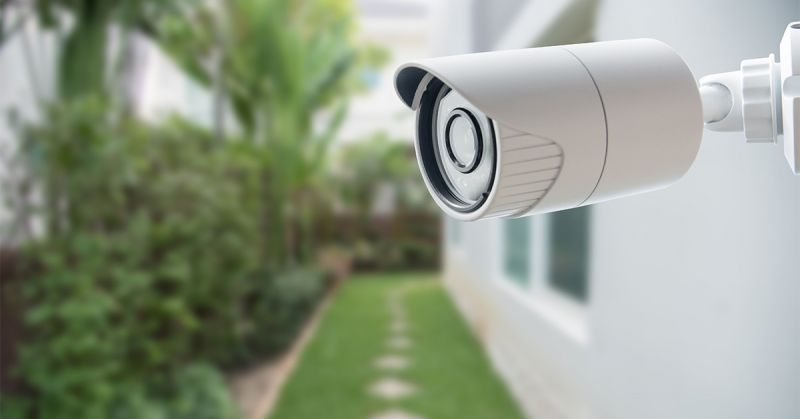
The Importance of Security Camera Installation
With advancing technologies, security cameras have emerged over the past decade as a first-line security tool on par with alarms for homes and businesses. Sophisticated security camera systems are becoming more affordable, and research has determined that security cameras provide excellent deterrence value against criminal activity. Along with affordability, reasons homeowners and businesses are turning to security cameras instead of or as a supplement to alarm systems include the following:
- Helps deter criminal activity.
- Can identify criminals and other evidence related to the crime.
- Allows owners to check on their property at any time.
- Monitors other activity around the property.
- Can lower property insurance premiums.
- Can provide evidence to back up insurance claims.
- Enhances overall sense of security and safety.
The electrical technicians at Tallahassee’s Meeks Electrical Services know a thing or two about security camera installation. It pleases us to offer you some tips on effective security camera installation.
Residential Security Versus Commercial Security
In general, commercial operations have more significant surveillance requirements than homes. Residential security cameras are primarily for a break-in/burglary defense, while businesses also must contend with potential hold-ups, shoplifting, employee theft, vandalism, and other crimes. While a basic home security camera system should cover ground-floor windows and doors, a commercial system might also need to cover parking areas, stairwells, common areas, customer service areas, and other vital locations.
Today’s residential and commercial security camera systems primarily rely on CCTV-based hardware (closed circuit television) that uses IP cameras that transmit video via a network cable or WiFi connection. Wired IP cameras rely on an Ethernet cable for power and video transfer, while wireless IP cameras send their video through a wireless connection to a router. Unless powered by a battery, wireless cameras still need a cable for their electricity. Most systems allow for storing security footage on a hard drive and/or in the cloud and provide real-time access to footage on your computer, tablet, or cellphone.
Pick the Right Security Camera(s) for the Job
Over a half-dozen security camera types provide different kinds of surveillance coverage. Popular options include:
- Bullet Cameras—easily recognized as a security camera, this style can range in size from a lipstick tube to a football. They provide great deterrent value and excellent coverage in distinct areas. Higher-end models offer night-vision options and exceptional range and zoom capabilities.
- Dome Cameras—these small orb-shaped cameras are usually mounted on ceilings and provide a wider field of view than bullet cameras.
- Turret Cameras—these cameras have a ball-and-socket joint that allows for easy readjusting of the coverage area.
- Pan Tilt Zoom (PTZ) Cameras— can be configured remotely with an app, joystick, or computer program, allowing the user to re-aim, zoom, pan out, or track people in real-time. They can also be programmed to cycle through different viewing options automatically.
- Fisheye Cameras—provide concentrated coverage over a wide field of view.
- Multiple Sensor Cameras—similar to the fisheye type, this panoramic camera can capture up to a 360-degree view plane but provides more clarity through image processing software.
- Doorbell Cameras— available either wired or wireless, these small cameras let you monitor activity outside your door in real-time, with an app that connects it to your smartphone. Some of these brands have additional features that allow you to activate lights and lock or unlock your door remotely.
Location, Location, Location
Camera location is one of the most crucial considerations in effective security camera installation. As previously suggested, any potential ground-floor entryways should be covered. Always mount security cameras at least nine feet off the ground. This helps prevent criminals from disabling or otherwise tampering with them. Protect any wiring by running it inside walls, ceilings, and baseboards. In addition to considering view planes, camera placement should also account for lighting. During night, there needs to be enough lighting for cameras to pick up details, or consider night vision capable options. During the daytime, ensure that the view plane has no obstructions by the sun or glare from reflected surfaces.
Contact Meeks to Install Your Security Camera System
With more than 1.1 million burglaries per year, according to the latest FBI crime reporting data, you might be thinking about installing a security surveillance system at your home or business. To learn more about your security camera system options, consult with the residential technicians at Meeks Electrical Services. Our experts can assess your security needs and professionally install a system that will help protect your home or business.
For all residential and business electrical needs in the Tallahassee area, contact Meeks today at (850) 575-5241.